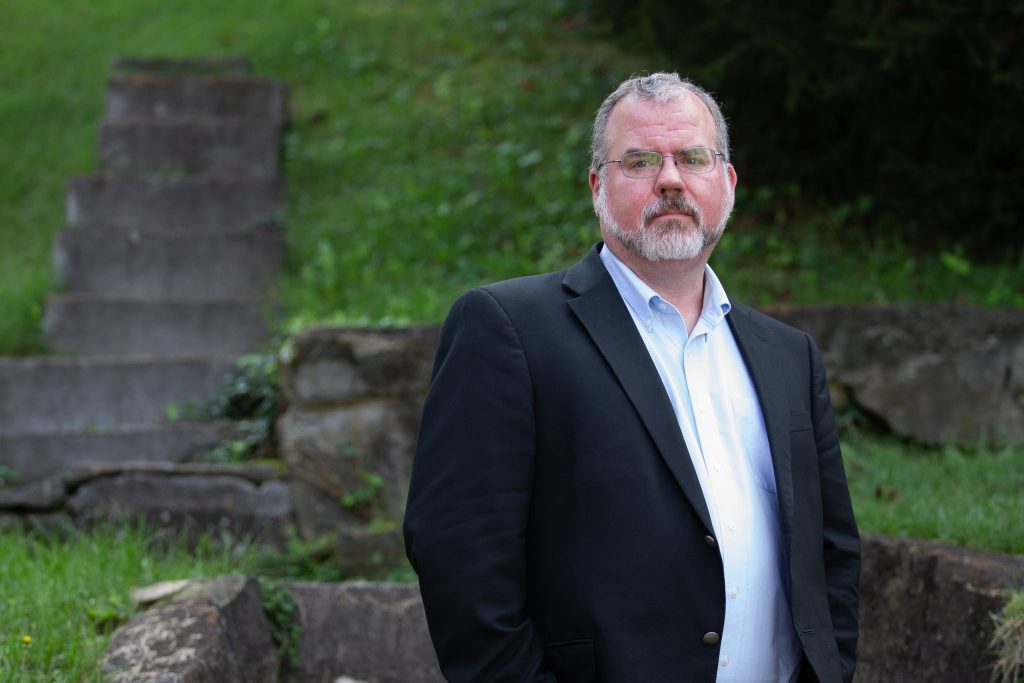 Charleston Gazette-Mail reporter Ken Ward is a rare specimen in many ways. First, he’s a journalist — and there aren’t many of those around any more — at least many good ones.
Charleston Gazette-Mail reporter Ken Ward is a rare specimen in many ways. First, he’s a journalist — and there aren’t many of those around any more — at least many good ones.
Second, he’s an investigative journalist. He actually digs for stories — and by “dig,” I mean way below the surface to the root political causes of events, programs, government and corporate actions.
Finally, he’s an investigative journalist who cares about workers — especially West Virginia workers, and especially West Virginia coal miners.
Today Ward received some hard-earned and well-deserved recognition as a MacArthur “Genius” Grant Awardee. The awards recognize “exceptional creativity” in various fields and come with no-strings-attached awards of $625,000 each.
The award is not just good news for Ward (and his bank account), but it’s also a victory for investigative journalism. With the 24 hour news cycle, short attention spans and little money for good journalism, investigative journalism is becoming increasingly rare. But at the same time it’s becoming more important as governments on the state and federal levels are increasingly controlled by big money corporate interests.
Fearless
According to the John D. and Catherine T. MacArthur Foundation:
Ken Ward Jr. is an investigative journalist whose in-depth coverage of the coal, chemical and natural gas industries in West Virginia is exposing the true economic, social, and health impacts of industrial abuse on Appalachian residents and communities. As a staff writer for the Charleston Gazette-Mail for more than twenty-five years, Ward fearlessly reports on worker safety violations, environmental hazards, and corporate malfeasance of regional coal and chemical companies.
He employs familiar tools of the journalistic trade—documentary discovery, Freedom of Information Act filings, one-on-one interviews and the like—but through a combination of tenacity, curiosity, and compassion for the residents of his home state, his investigations uncover the larger context surrounding specific incidents and inspire empathy for victims and their families. Working jointly with reporters at National Public Radio and the Center for Public Integrity, Ward uncovered decades of government inaction around black lung disease that allowed it to continue to afflict miners even as regulators and politicians assured the public it was no longer a threat. Subsequently, the Mine Safety and Health Administration instituted new regulations. His reporting on a 2014 chemical spill that contaminated the drinking water of 300,000 people included an examination of the widespread lack of emergency planning and accident prevention in the coal and chemical industry. In his current work for the ProPublica Local Reporting Network, he is investigating the growth of the natural gas industry in West Virginia and its impact on communities and the environment.
Through balanced analysis and comprehensive documentation and discovery, Ward is providing much-needed clarity about the overlooked consequences of corporate practice and motivating companies and policymakers to be accountable partners with residents striving for healthy communities.
Ward’s focus was always on mine safety, but we at OSHA didn’t escape his attention when a chemical plant incident arose or other workplace tragedy happened in West Virginia. Aside from wanting to know what OSHA was going to do about the problem, he was always doggedly mining the data — and making no secret of his frustrations when the information he — and the public — needed and deserved was not quickly and accurately provided.
And he gets it. In the video below he talks about how coal miners (like most workers killed on the job) die one at a time, unnoticed by anyone except their families and friends. And the data they compiled showed over a ten-year period, that nine out of ten died because their company was not complying with the law.
The Gazette noted that Ward is “the only journalist in the group of 25 fellows announced today, a group that includes scientists, artists, authors, scholars and advocates. He sees the fellowship as an “incredible honor,” but also an indication that the reporting done here is valuable. “This shows the importance and value of the kind of journalism I believe in, and that most of us have been trying to do for decades here,” Ward said.
But the road hasn’t been easy, nor will the future. Earlier this year, the Gazette-Mail filed for bankruptcy and was bought by HD Media. “It was late January that we were all given layoff notices,” Ward said. “There were – and still are – some tough times for this newspaper.”
For the past year, Ward has been part of the initial Local Reporting Network, an initiative from the nonprofit group ProPublica. He’s been working on longer-term stories on the natural gas industry all year as part of that program. His latest story can be found here. It was done in partnership with the ProPublica Local Reporting Network about the proposed Mountain Valley Pipeline and how state regulators are planning to change construction rules so the gas pipeline can proceed despite a federal court ruling that revoked a key approval.
You can follow Ken on Twitter here.
Meanwhile, I’m heading upstairs to celebrate with a glass of champagne.
Ken makes us WVirginians proud